What is Ethics and Global Studies?
In this program, students study history, philosophy, religious studies and politics, with the goal of developing ethical approaches to living together in our complex world.
Ethics and Global Studies at Augustana
Taking ethics and global studies at Augustana means you'll ask big questions about world problems. You'll be able to pursue topics like the environment, international relations, religious conflict and peace building, and Indigenous studies. Studying complex problems will prepare you to adapt to various work environments and will cement your future as a life-long learner.
Program Information
Interdisciplinary Studies: Ethics and Global Studies is available as a:
- Major in the Bachelor of Arts degree program
Academic Innovations
All programs at Augustana include a wide-ranging liberal arts and sciences core, taught within our unique “3-11” calendar.
Careers
An undergraduate degree majoring in Ethics and Global Studies from Augustana will equip you for a variety of careers such as:
- Career Diplomat
- Lawyer
- NGO Executive
- Public Health Physician
- and many more!
Ethics and Global Studies AlumnUS

Entrepreneur + Urban Farmer
“At Augustana, I was taught the skills to learn on my own,” says Mason. “Augustana pushed me well outside my comfort zone. I came out with the confidence that if there is something I want to learn how to do, I know I can.”
Course Highlights
This course introduces students to some of the contemporary discussions and debates regarding the body as a social phenomenon taking place within feminism and related fields. Students will learn how to critically unpack the power that operates through bodily reactions to self, others, and society through various threads of feminist theories.
Preparation for and participation in a multiple-university, international Model United Nations Assembly or similar competition.
Examination of questions of right and wrong, good and evil, and reasons for action, through study of ethical theories of philosophers such as Plato, Aristotle, Kant, and Mill.
An examination of religious texts and artifacts from the ancient world (e.g. biblical texts, Mesopotamian myths, iconography on statuary, reliefs, etc.), with a specific focus on representations of sex and gender. The course will introduce contemporary issues in gender theory to use as a lens for examining material from the ancient world, with the goal of better understanding various human beliefs and practices in relation to sexuality, the body and construction of gender.
Investigation of the philosophical and social issues related to technology and the environment. Topics may include the natural/artificial distinction, different meanings of environment, the ways we understand, package, and manage nature as well as issues in environmental ethics and aesthetics. May include texts by Western and Indigenous thinkers.
Related Information
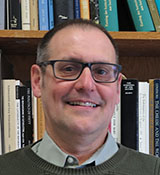
Geoffrey Dipple, PhD
Geoff Dipple earned his PhD. in early modern European history at Queen's University. He has published in the history of the Protestant Reformation in the German-speaking lands.
Visit their website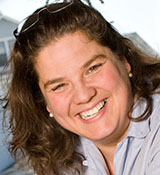
Mélanie Méthot, PhD
Mélanie Méthot teaches courses in Canadian history, crime and criminal justice in Canada, women in Canadian history, Quebec history and methods of historical research.
Visit their website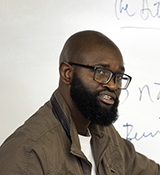
Michael Omoge, PhD
Michael Omoge teaches courses in philosophy, ethics and Black studies. His research focuses on the philosophy of mind and modal epistemology.
Visit their website
Sandra Rein, PhD
Sandra Rein teaches in the areas of international relations, international political economy, and social thought. Her current research focuses on Raya Dunayevskaya.
Visit their website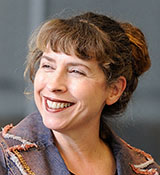
Janet Wesselius, PhD
Janet Wesselius's research mainly focuses on feminist epistemology and philosophy of science and environmental theory.
Visit their website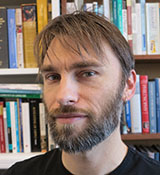
Joseph Wiebe, PhD
Joseph Wiebe teaches introductory courses in Religious Studies, Religion and Ecology, and Ethics.
Visit their website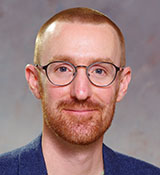
Ian Wilson, PhD
Ian D. Wilson teaches introductory courses on the religions of the world, theories of religion, and cultures of the ancient Near East.
Visit their website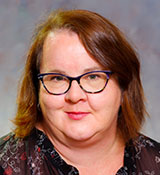
Shauna Wilton, PhD
Shauna Wilton's main teaching areas are related to gender, ethnicity, popular culture, and law and politics. She also does research on teaching.
Visit their website